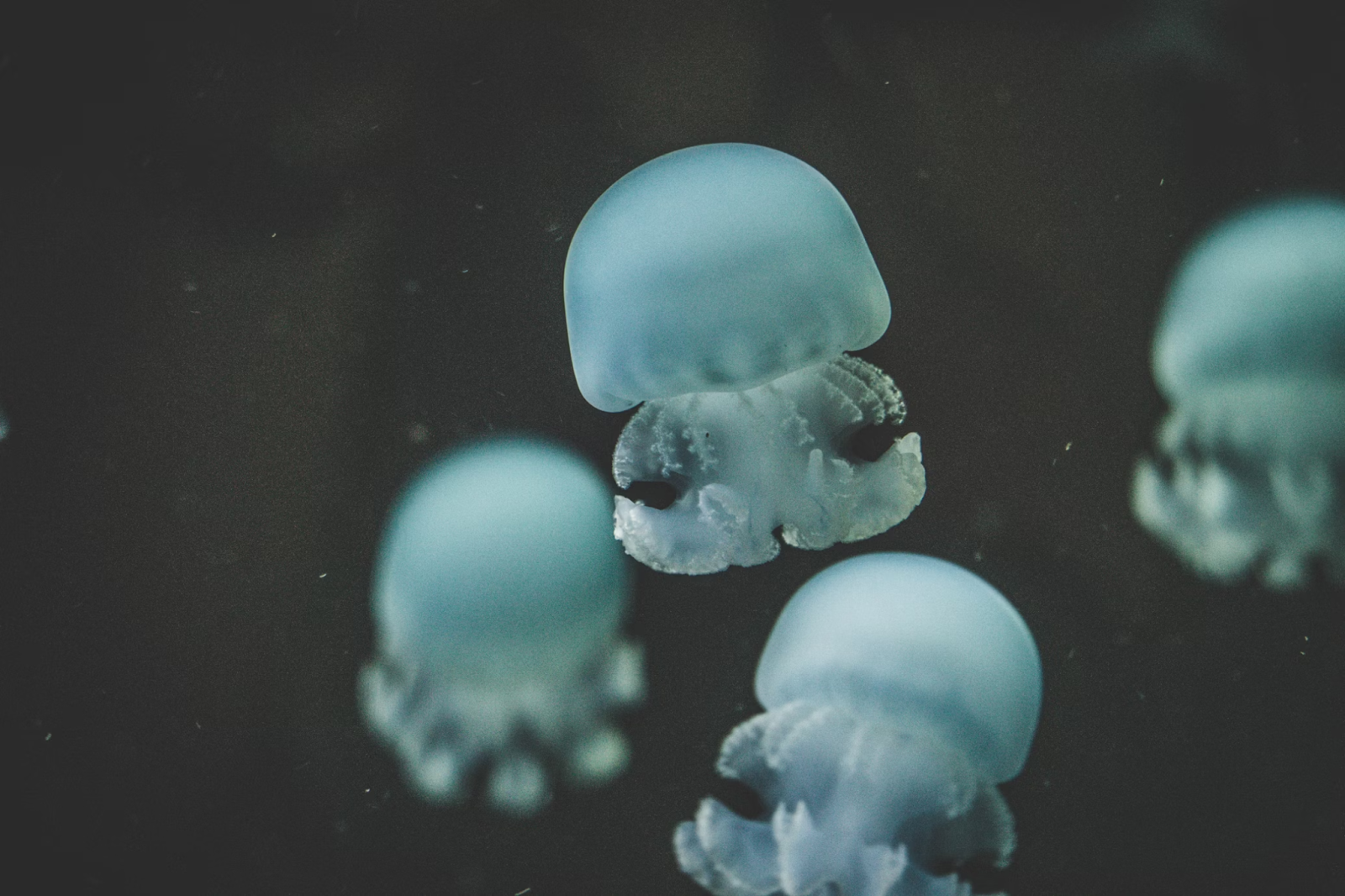How To Treat A Jellyfish Sting In Italy

What Is the Best Way to Treat a Jellyfish Sting?
Jellyfish stings can be a common issue for those enjoying the beautiful beaches of Italy. While not usually life-threatening, a jellyfish sting can cause discomfort and pain. If you’re visiting Italy and get stung by a jellyfish, it’s important to know how to treat jellyfish sting, especially if you’re unfamiliar with the local healthcare system.

What to Do If You Get Stung by a Jellyfish in Italy?
If you get jellyfish sting poisons in Italy, your first instinct might be to panic, but it’s important to stay calm. Jellyfish stings, though painful, are generally not dangerous. Here’s a simple guide to follow after being stung by a jellyfish in Italy:
- Get out of the water: As soon as you feel the sting, leave the water to avoid getting stung further. Jellyfish tentacles can continue to sting even after detaching from the jellyfish.
- Do not rub the affected area: Rubbing the sting can spread the venom and worsen the reaction. Keep your hands off the area to avoid further irritation.
- Rinse the area with seawater: Use seawater to rinse the sting. Avoid fresh water, as it can increase the pain by activating more venom cells.
- Remove tentacles with tweezers or the edge of a card: Jellyfish tentacles can remain attached to your skin and continue to sting. Carefully remove them with tweezers or the edge of a credit card. Wear gloves if possible.
- Seek medical attention if necessary: If symptoms worsen or the sting covers a large area, it’s important to get medical treatment. ReadyHelp offers convenient access to English-speaking doctor for tourists and expats in Italy.
Popular Methods to Treat a Jellyfish Sting at Home
Many people prefer home remedies for mild jellyfish stings. While home jellyfish sting treatment is possible for minor stings, it’s crucial to know which methods are safe and effective. Below are some popular treatments for jellyfish stings that you can try at home.
Applying Vinegar
Effectiveness: Applying vinegar to the affected area is one of the most commonly recommended home treatments for jellyfish stings. Vinegar can help neutralize the venom and prevent the sting from spreading.
Safety: This method is generally considered safe. However, it’s important to note that vinegar should only be used on stings from certain types of jellyfish, like box jellyfish. For other jellyfish, vinegar may not provide any benefit.
How to Use It: After removing any remaining tentacles, pour vinegar over the affected area for several minutes. This can help reduce pain and inactivate the venom.
Hot Water Soaking
Effectiveness: Soaking the affected area in hot water is another well-known home remedy. Hot water can reduce pain and neutralize toxins from the sting.
Safety: Hot water treatments are generally safe as long as the water is not too hot. Aim for water temperatures around 40-45°C (104-113°F). Hotter water can cause burns, so it’s important to test the temperature before using it.
How to Use It: Soak the affected area in hot water for about 20-40 minutes. If soaking is not possible, apply a hot compress.
Baking Soda Paste
Effectiveness: Baking soda is sometimes recommended to relieve the pain and irritation from jellyfish stings. It’s believed that the alkaline nature of baking soda can neutralize the venom.
Safety: This method is safe for minor stings but may not be as effective as other treatments for jellyfish stings like vinegar or hot water.
How to Use It: Mix baking soda with seawater to create a paste and apply it to the sting. Leave it on for about 10 minutes before rinsing it off.
Ice Packs
Effectiveness: Applying ice or a cold pack to a jellyfish sting can help reduce swelling and numb the pain. This method does not neutralize venom but can offer relief from discomfort.
Safety: Ice packs are safe to use but should not be applied directly to the skin. Always wrap ice in a cloth or towel to avoid frostbite.
How to Use It: Place an ice pack on the affected area for 15-20 minutes at a time. This can help with swelling and pain relief.

Seek Medical Treatment for a Jellyfish Sting at ReadyHelp English-Speaking Doctors
While home remedies can help with minor jellyfish stings, it’s important to seek medical attention if the sting is severe or symptoms worsen. ReadyHelp offers tourists and expats in Italy convenient access to English-speaking doctors. Here’s why ReadyHelp is a great option for medical treatment for a jellyfish sting.
Convenient Access
ReadyHelp provides an easy-to-use online platform that allows you to consult with a doctor without leaving your accommodation. Whether you are in a hotel or on the beach, you can reach out for medical advice quickly and efficiently.
Flexible Hours
ReadyHelp is available from 9:00 to 18:00, seven days a week. This flexibility guarantees that you can get the medical assistance you need when you need it most without waiting for a regular clinic to open.
English-Speaking Doctors
Communication is often a barrier for travelers seeking healthcare in a foreign country. ReadyHelp’s team of English-speaking doctors guarantees that language is not a problem. You’ll be able to explain your symptoms and understand the advice given clearly.
Affordable Pricing
Medical consultations with ReadyHelp start at just €40, making healthcare accessible even if you do not have local health insurance. Whether you need recommendations, treatment for a jellyfish sting, or another minor issue, our services are affordable and easy to access.
Prescription Assistance
If your jellyfish sting requires medication, ReadyHelp can assist with prescriptions and refills. This is especially useful if you’re staying in Italy for an extended period and need to maintain access to essential medications.
Quick Appointments
At ReadyHelp, booking an appointment is simple. You can make a booking online, by phone, WhatsApp, or email. This ensures you can get medical care quickly, without the hassle of navigating the local healthcare system.
Jellyfish stings can be painful but are usually not life-threatening. Knowing how to treat a sting with common home remedies like vinegar, hot water, baking soda, and ice packs can help you manage the pain and irritation. However, if the sting is more severe, or if symptoms do not improve, it’s important to seek medical symptomatic treatment of jellyfish stings.
ReadyHelp offers convenient, affordable access to English-speaking doctors for tourists and expats in Italy. Our flexible hours, prescription assistance, and easy appointment booking make it simple for you to get the care you need. Whether it’s a jellyfish sting or another minor health issue, ReadyHelp is here to assist.
Book your consultation online today and get peace of mind with ReadyHelp! Whether it’s a jellyfish sting or another non-urgent medical issue, we’re here to help.
Recommended Articles
Looking for other information about healthy living in your area? Our blog has information about healthful habits, nutritious foods and hospitals or late-night pharmacies near you!
-
Who Needs a Tetanus Vaccine and When?Read More
If you’re traveling in Italy and find yourself in need of a tetanus shot, knowing where to go and what to expect is essential. Whether you’re dealing with a cut, looking for a booster, or simply staying up to date with your vaccinations, this guide answers all your questions about tetanus vaccination clinics in Rome, […]
-
Top Triggers for Perioral Dermatitis and Effective Treatment OptionsRead More
Perioral dermatitis is a frustrating skin condition that often appears as a rash around the mouth, nose, or eyes. If you’re traveling in Italy and struggling with this condition, understanding its triggers and treatment options can help you manage it effectively. This article discusses what triggers perioral dermatitis, what to avoid, and how to treat […]
-
 Can You Fly With Pneumonia? A Comprehensive Guide for TravelersRead More
Can You Fly With Pneumonia? A Comprehensive Guide for TravelersRead MoreTraveling can be challenging, especially when dealing with health concerns like pneumonia. If you’re planning a trip to Italy or need medical assistance while exploring the country, it’s crucial to understand the risks and precautions associated with flying with pneumonia. This article addresses common questions about pneumonia and air travel, outlines potential risks, and provides […]
-
 Flying After Surgery: What You Need to Know About Air Travel and RecoveryRead More
Flying After Surgery: What You Need to Know About Air Travel and RecoveryRead MoreFlying after surgery can be daunting, but with the right knowledge and precautions, it’s possible to travel safely. Whether you’re recovering from knee surgery, a hip replacement, or a major medical procedure, it’s essential to understand how air travel can affect your recovery and what steps you can take to minimize risks. This guide covers […]
-
 Can you fly with vertigo: What You Can Do About It?Read More
Can you fly with vertigo: What You Can Do About It?Read MoreTraveling with vertigo can be a daunting experience. Whether it’s a short business trip or a long-awaited vacation, the idea of flying with dizziness or balance issues can cause anxiety for many. So, can you fly with vertigo? The answer is yes, but it requires some preparation and care. Vertigo can affect people in various […]
-
 Navigating Pregnancy in Italy: What Expecting Mothers Need to KnowRead More
Navigating Pregnancy in Italy: What Expecting Mothers Need to KnowRead MorePregnancy is a life-changing journey, and for expecting mothers in Italy, understanding how the healthcare system works, cultural practices, and available resources is essential. Whether you are a local resident or an expat, knowing what to expect when navigating pregnancy in Italy can make this experience less stressful and more enjoyable. This article will cover […]






